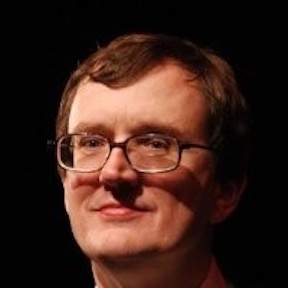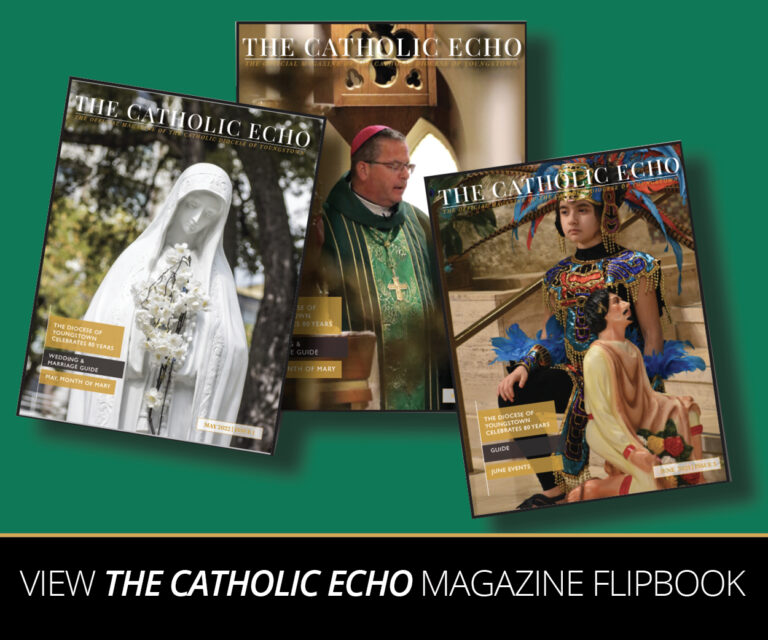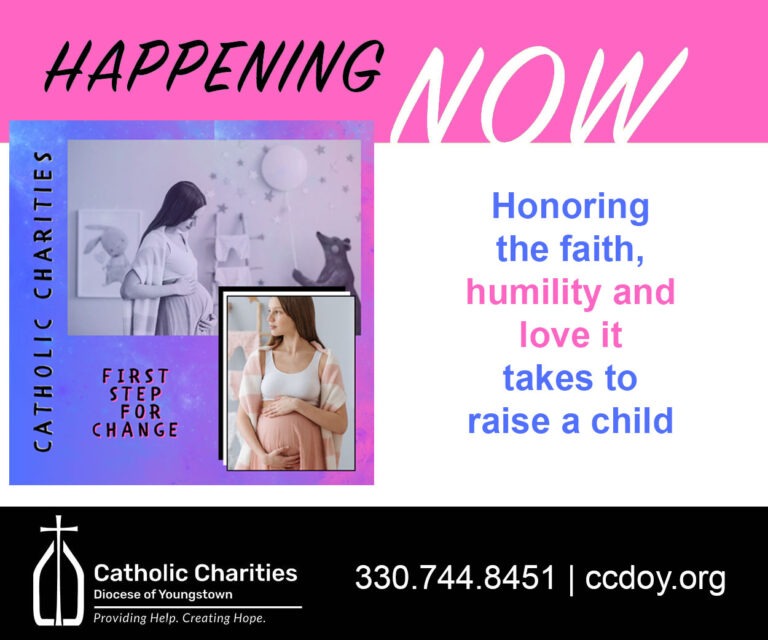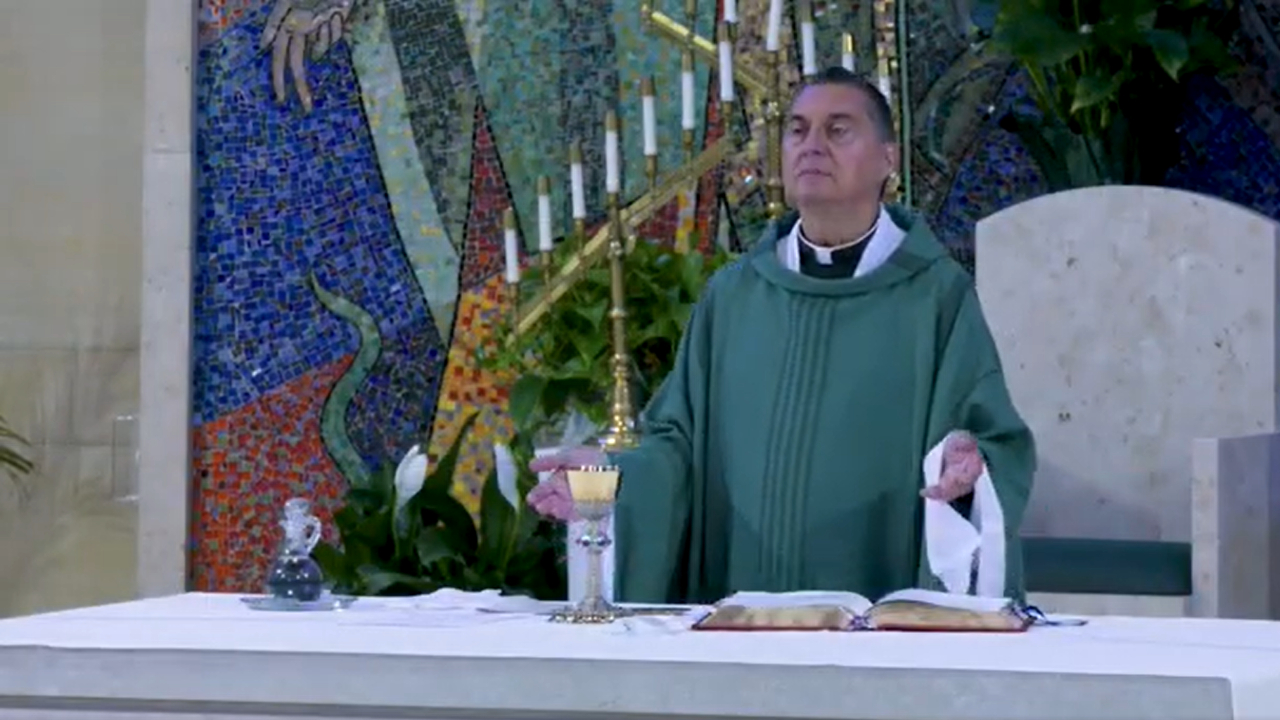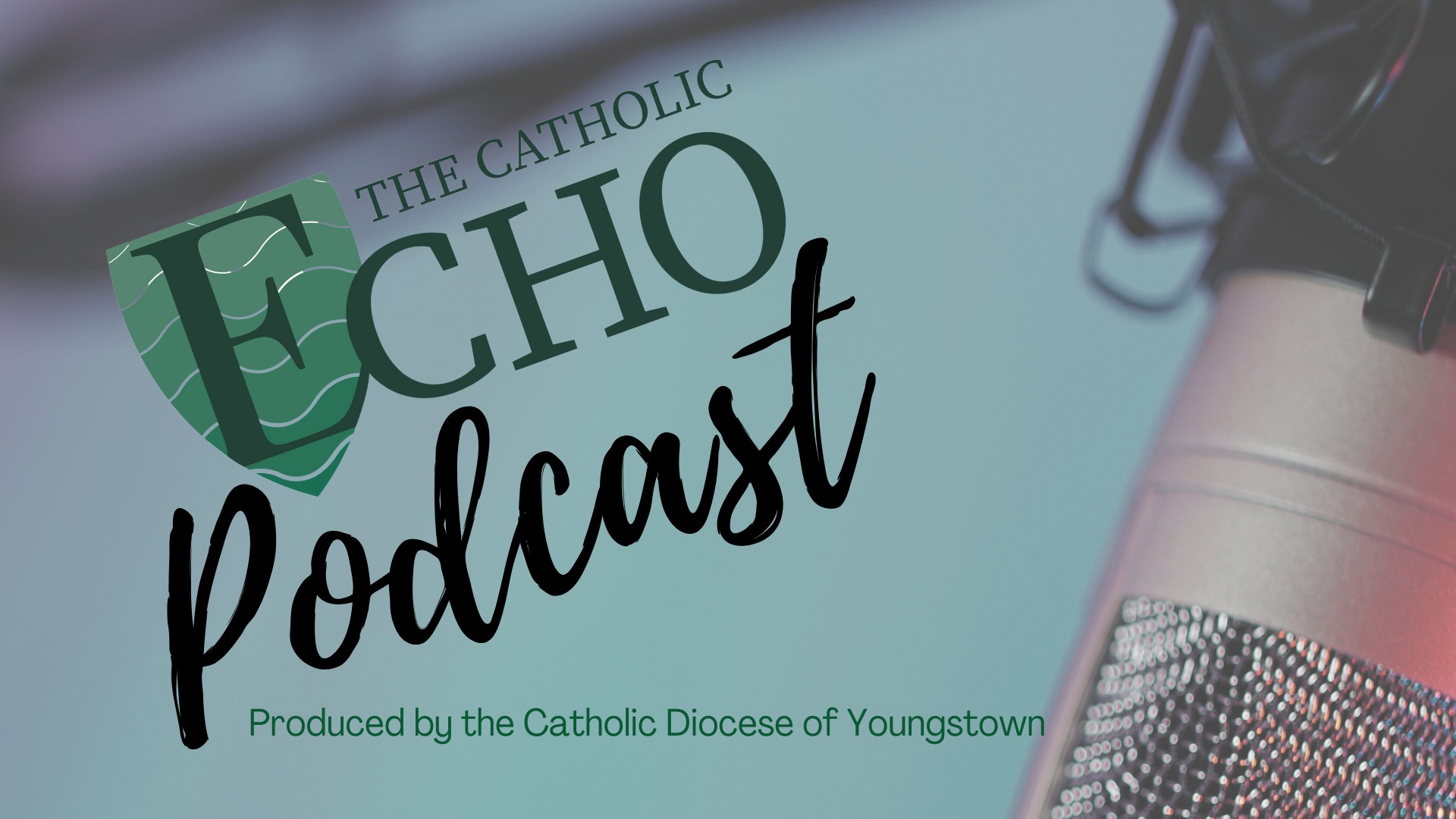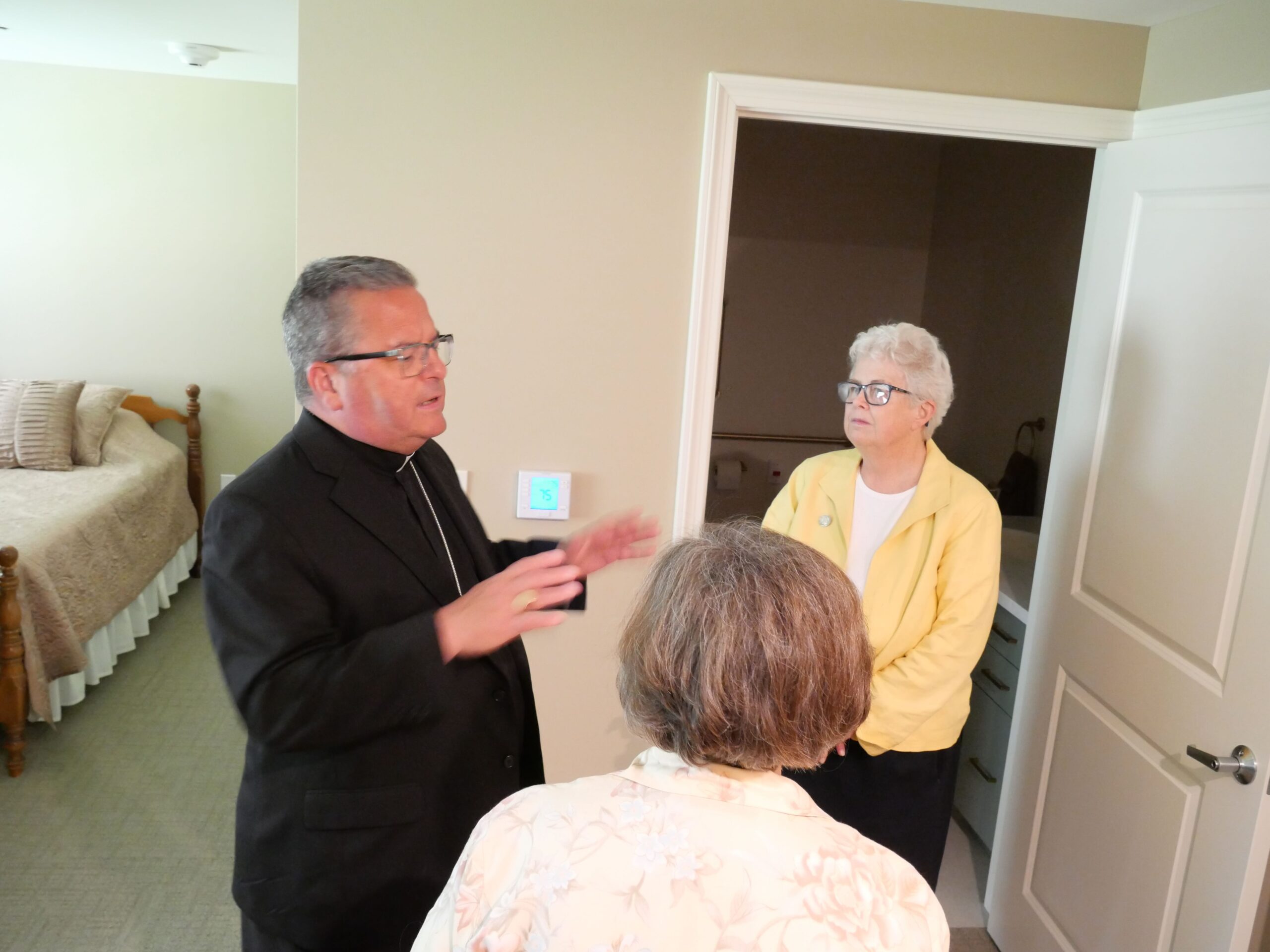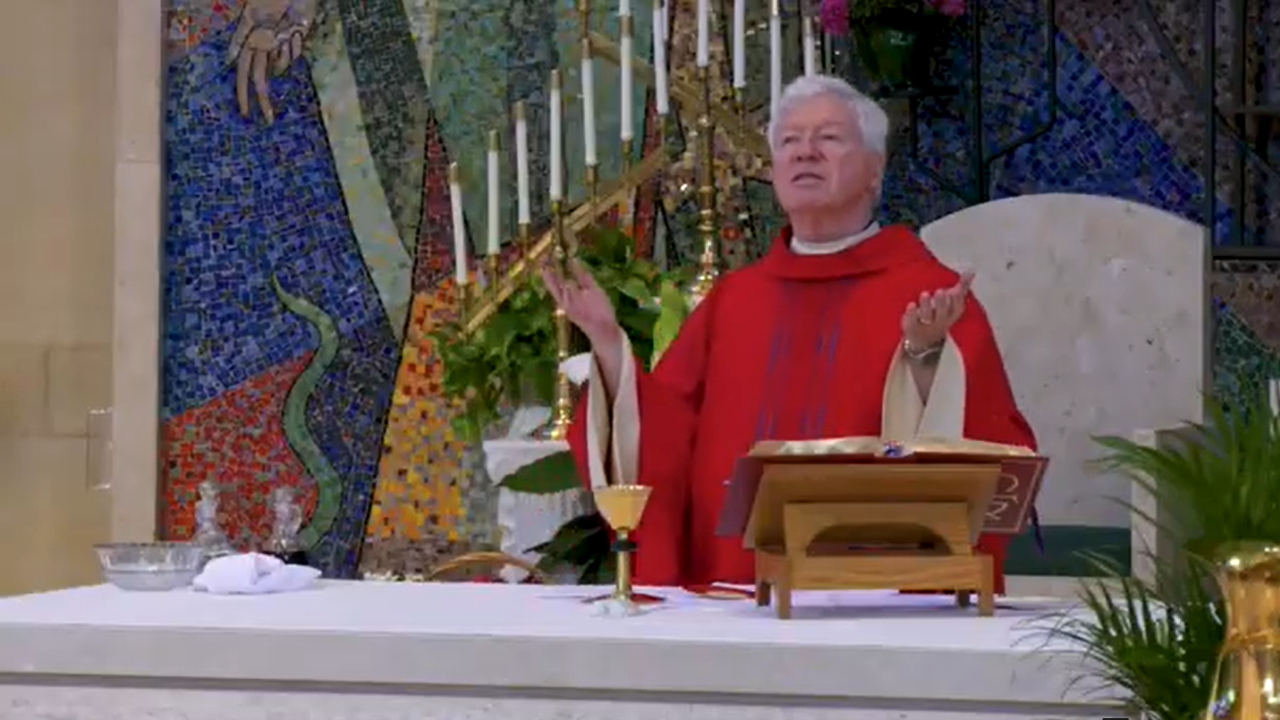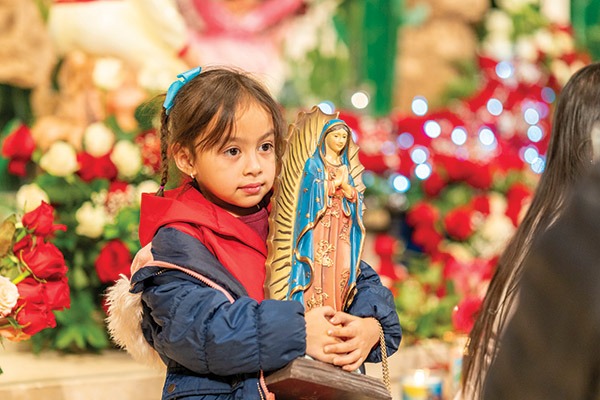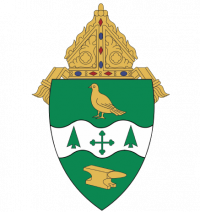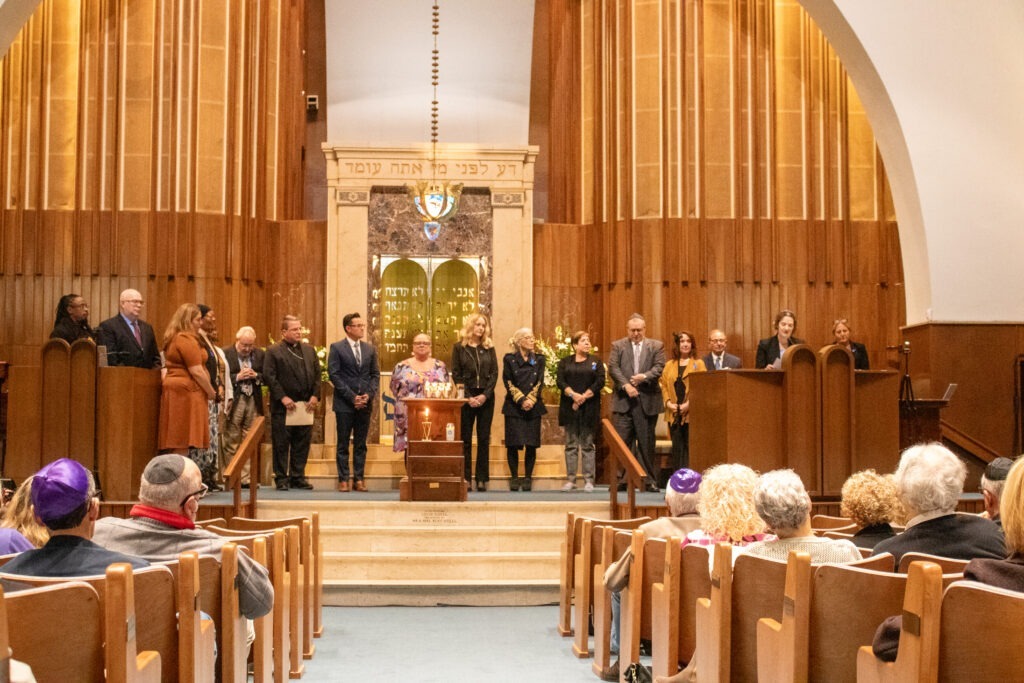
Bishop David Bonnar joined Jewish and other faith leaders at Congregation Ohev Beth Sholom in Youngstown on October 26 to mark the fifth anniversary of the slaughter of 11 worshipers at a Pittsburgh synagogue—yet they also denounced more recent atrocities against the Jewish people.
Bishop Bonnar offered his words, “rooted in prayer”—given in hope of “consolation to you, my dear brothers and sisters,” during a memorial service for those gunned down at the 2018 Tree of Life Synagogue shooting in Pittsburgh.
“There is no room in our world for prejudice, racism, hatred and violence,” Bishop Bonnar said. Speaking on behalf of the entire Catholic people of the diocese, he pledged: “Know of our solidarity with you and for you. Together, we are with you tonight to stand against hate,” Bishop Bonnar said.
Among other religious leaders speaking at the gathering were: Rabbi Courtney Berman, rabbi of Ohev Beth Sholom; Dr. Thomas Sauline, executive director of the Mahoning Valley Association of Churches and former diocesan staff member; Dr. Robin Woodberry, former executive director of the Mahoning Valley Association of Churches and presently an Episcopalian priest serving as priest-in-charge of St. Paul Episcopal Church in Canton; Pastor Juan Rivera of Victory Christian Center, Coitsville; Bonnie Deutsch Burdman, executive director of the Youngstown Area Jewish Federation for community relations/government affairs; and representatives of other faith communities.
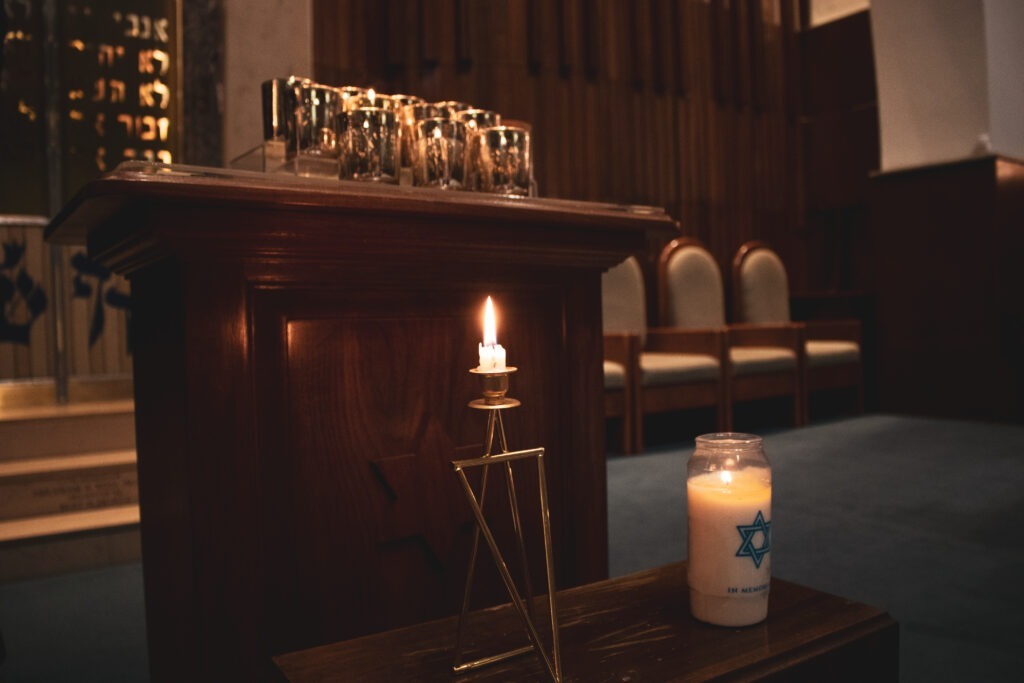
In addition to the speakers, there was a candle-lighting ceremony in honor of each of the shooting victims and the praying of Kadish, a traditional Jewish prayer for the dead.
While welcoming and thanking those present, Rabbi Berman noted that “this senseless act has forever changed our perceptions of what it means to practice our faith safely and peacefully.”
The shooting, she continued, has “had a unique impact on our Youngstown community” because of the proximity to Pittsburgh.
In a similar sense, Rabbi Berman said, “the heinous events of the Hamas invasion of Israel on October 7 suddenly and violently destabilized the entire world.” Though the memorial was planned long before the Hamas invasion, “we acknowledge that what is going on in Israel intrudes on our every waking thought.”
Speaking as a rabbi “and as a mother to three young children,” she said that “I am in agony right now when I think of the suffering of all of those in Israel who saw loved ones murdered or ripped out of their arms and dragged away“—an agony widely shared.
So in addition to remembering the victims in Pittsburgh and the many slaughtered in Israel, Rabbi Berman called for prayer, citing the invocation of fellow rabbi Hannah Ellenson.
“Holy and Blessed One, show Israel’s leaders your path so they may act with wisdom, courage and dedication,” Rabbi Berman said in quoting the prayer, “that they may be unwavering in their pursuit of peace. Strengthen their hearts, but keep them from hardening.”
“Master of Compassion, help us hold the humanity and the heartache of the Jewish people while also holding the humanity and the dignity of the innocent civilians. As we are made in your image, remind us of your ways.
Spread over us your shelter of peace and fulfill the vision of your prophets: ‘They shall beat their swords into plowshares and their spears into pruning hooks,’” Rabbi Berman quoted. “‘Nation shall not take up sword against nation. They shall never again know war.’”
“Together, we say: Amen,” Rabbi Berman prayed.
“Unfortunately, being Jewish means living with fear. This was true during the millennia leading up to the Pittsburgh shootings 5 years ago, and it is true now,” Rabbi Berman explained, citing dramatic increases in recent years in antisemitic acts.
“The most recent war taking place has already fanned the flames of antisemitism worldwide. As Jews, we stand against all forms of hate. Now more than ever, we need to all unite as people—not just Jews but all of us of all faiths—against hate.”
A theme running through the entire evening, from the many interfaith speakers, was the prevalence and variety of identity-based hatred in today’s society. While the evening had a focus on antisemitism specifically, remembering the victims of the Tree of Life massacre, speakers also reflected on combating all forms of racism and religious hatred—including Islamophobia and violence against persons and communities of color—and promoting a desire for peace in the world.
Rabbi Berman cited the Jewish prayer Oseh Shalom bimromav—“May our God who makes peace in the heavens bring peace to us and to all the world.”
“Yet,” Rabbi Berman noted, “we know that each of us needs to accept responsibility for making peace in the world. May we stand together against hate, and engage in the difficult task of repair. Oseh Shalom, Maker of Peace, help us to all become makers of peace. Amen,” Rabbi Bermann concluded.
Bishop Bonnar, a Pittsburgh native, in his address noted his personal connection with the Tree of Life tragedy.
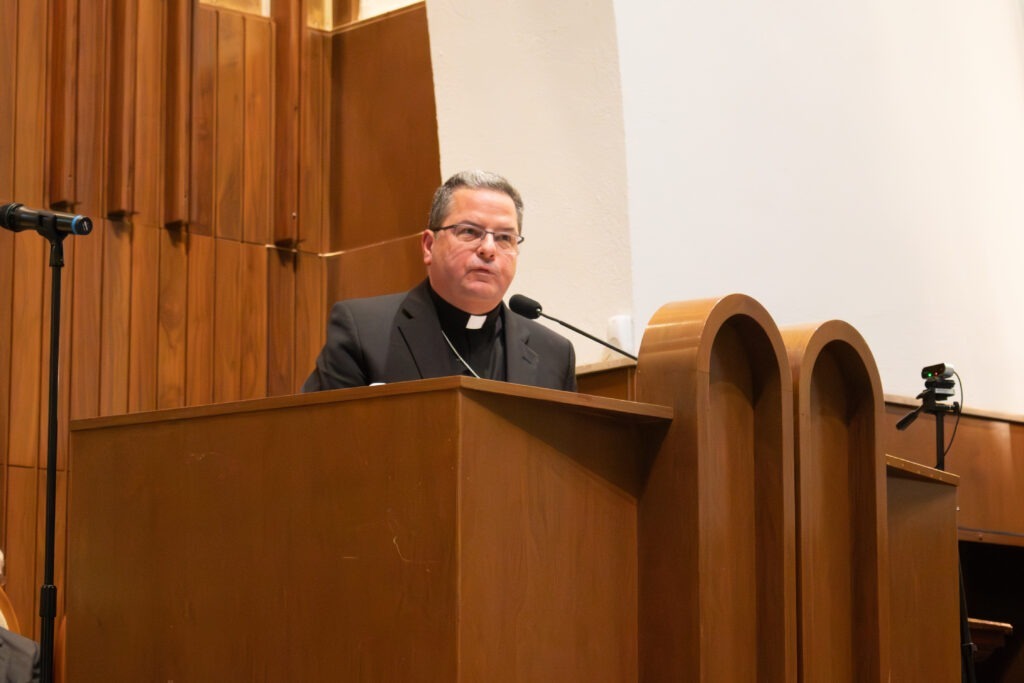
“Five years ago, I was enroute to celebrate a funeral” when he heard a radio bulletin about an active shooter in the Tree of Life Synagogue in Squirrel Hill. He was familiar with Squirrel Hill because he had been assigned to a local parish and also belonged to the Jewish Community Center—a fitness center there.
“All day long, I was riveted by the TV coverage and the tragic news” as it unfolded. “I could not imagine being in that holy place and facing what those prayerful people experienced,” the bishop recalled. “Evil knows no borders.”
Still, “it happened again, on yet another Saturday morning just a few weeks ago, as terrorists stormed the Israeli border taking innocent lives along with hostages”—putting a cruelly abrupt end to a joyous music festival taking place.
“We know that those who perpetrated these horrific acts have hurt innocent people, even those they claim are their own people. So many have suffered,” the bishop continued. “All of us people of good will—Jewish, Christian and Muslim alike—must pray for a just and lasting peace.”
The bishop invoked one of “the great legacies” that Christians and Jews share—the Psalms—which “contain virtually every human emotion.” In particular, he cited Psalm 44, a communal lament after a defeat or words that emerge from being attacked. This particular psalm expresses the angst of the people who clearly have been true to the covenant with God but still face suffering that they might otherwise interpret as punishment for infidelity to their covenant.
“All this has come upon us, though we have not forgotten you, nor been disloyal to your covenant,” Psalm 44 reads.
“No doubt, that sentiment is alive in many hearts tonight. We are essentially asking the primordial question—one that Job struggled with in the Bible: “Why do bad things happen to good people?” Bishop Bonnar said. “Evil knows no borders.”
Although “our common covenant with God does not protect us from every evil,” the bishop pointed out, “our God and His goodness knows no borders either. Sometimes—and this is hard given that we live in a world of instants—we need to wait for God to affect justice.
“The prophet Isaiah points to this reality in Isaiah 42:4 where God promises that His servant, ‘will not grow dim or be bruised until he establishes justice on the Earth.’”
